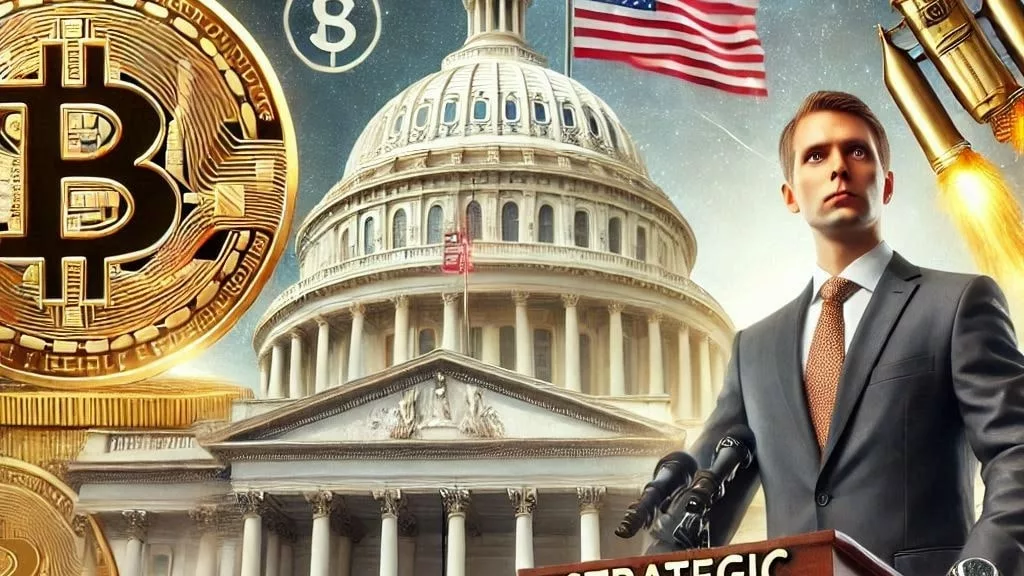
Wyoming Senator Cynthia Lummis has become a leading figure in advocating for Bitcoin’s integration into the United States’ financial system. In recent statements, Lummis emphasized the need for the U.S. to establish a national Bitcoin reserve, which she believes could offer long-term solutions to the country’s growing national debt and inflation concerns. Her proposal suggests that Bitcoin should play a central role in the nation’s economic future, providing a more resilient alternative to traditional financial mechanisms.
Lummis has consistently been a strong supporter of cryptocurrency and blockchain technologies. She views the U.S. government’s current policies regarding digital assets as an opportunity to position the country as a global leader in this emerging sector. One key aspect of her advocacy is the role of David Sacks, the newly appointed “Crypto Czar,” who Lummis believes will be crucial in shaping future cryptocurrency regulations.
Sacks, a well-known venture capitalist and former PayPal executive, is expected to guide the U.S. government through the complexities of digital asset policy. Lummis sees his leadership as essential to advancing the idea of a national Bitcoin reserve, which she argues could help stabilize the U.S. economy, especially in light of rising inflation and increasing national debt.
One of the most innovative aspects of Lummis’ proposal is the idea of linking Bitcoin to the U.S. Treasury’s gold reserves. Rather than purchasing Bitcoin directly with federal funds, Lummis suggests that a portion of the U.S. Treasury’s gold could be converted into Bitcoin. This would create a Bitcoin reserve without directly impacting the federal balance sheet, as gold certificates would back the digital assets.
Lummis argues that this approach would provide several economic benefits. For one, it could offer a hedge against inflation, as Bitcoin is increasingly seen as a store of value. Additionally, by tying Bitcoin to gold, the U.S. could create a reserve system that combines the stability of traditional assets with the growth potential of digital currencies. Lummis has also suggested that such a move could significantly reduce the national debt over the next two decades, as Bitcoin’s price continues to rise.
Lummis’ proposal is designed to help the U.S. navigate its current economic challenges, particularly the national debt, which exceeds $30 trillion. She has pointed out that the U.S. internal debt to GDP ratio is approximately 130%, while the global debt to GDP ratio is even higher, exceeding 300%. Given these figures, Lummis believes that the U.S. needs innovative solutions to avoid a potential financial crisis.
She also predicts that the U.S. dollar will face further devaluation in the coming years, which could lead to rising inflation. In this context, Bitcoin offers a potential safeguard. By establishing a Bitcoin reserve, Lummis suggests the U.S. could protect its financial system from the risks of inflation while providing an alternative to traditional reserve assets like gold.
Looking ahead to 2025, Lummis is optimistic that the U.S. will make significant progress in developing cryptocurrency regulations. She believes that 2025 will be a pivotal year for the U.S. government to pass comprehensive laws related to digital assets, laying the groundwork for a national Bitcoin reserve. Lummis sees this as an essential step in integrating cryptocurrencies into mainstream financial policy, ensuring that the U.S. remains competitive in the global economy.
As Bitcoin continues to gain traction as a store of value, the conversation surrounding its potential role in U.S. economic policy is becoming more urgent. Lummis’ vision for a national Bitcoin reserve aligns with growing global interest in cryptocurrencies and offers a practical solution to some of the U.S.’s most pressing economic challenges.
Cynthia Lummis’ proposal to establish a national Bitcoin reserve, linked to U.S. gold assets, represents a bold shift in how the U.S. government might approach financial policy in the coming years. By integrating Bitcoin into the nation’s reserve system, Lummis believes the U.S. can protect itself from inflation, reduce its national debt, and enhance its economic standing globally. As the conversation around Bitcoin’s role in U.S. financial policy continues to evolve, all eyes will be on how these proposals unfold in the coming years.




Get the latest Crypto & Blockchain News in your inbox.